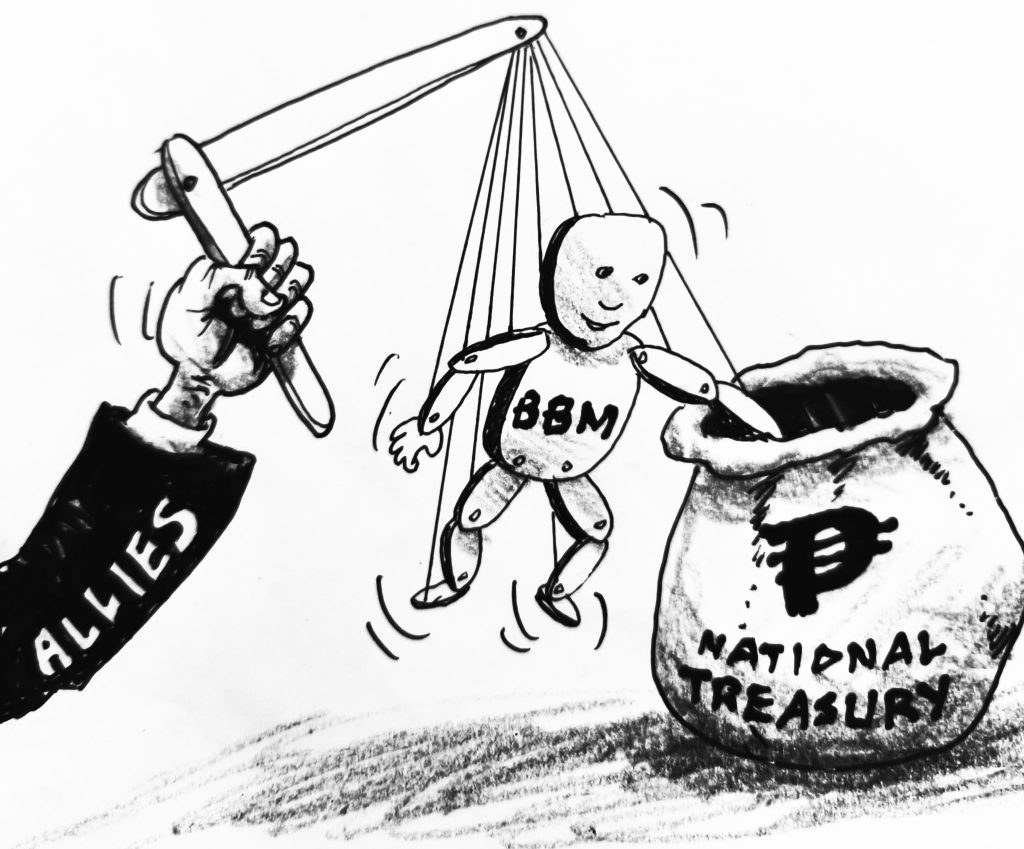Contrary to what his critics allege, it is likely that President Ferdinand Marcos Jr. entered Malacañang with the intention of pushing the country forward and seeing it prosper. Yet the glaring reality is that he has been tricked by his own allies in Congress and the Senate, who shrewdly used his signature and approvals as their license to plunder, exhibiting his carelessness, misplaced trust, weak leadership, and failure to guard the public treasury.
The President’s closest allies are well-versed in crafting documents, budgets, and policies that appear legitimate on the surface but are laden with opportunities for siphoning funds. By relying excessively on their assurances, the President gave his imprimatur to questionable allocations, later realizing he had unwittingly enabled the very plunderers he should have restrained. In this sense, the betrayal lies not only in the corruption of his allies but also in his failure to subject their actions to rigorous scrutiny.
A government’s machinery is designed to safeguard public money through layers of accountability. However, when the Chief Executive himself surrenders this responsibility to others, those safeguards collapse. By his own negligence or indolence, Marcos Jr. weakened the nation’s defenses against unscrupulous officials. This allowed the legislative cabal surrounding him to fatten themselves at the expense of the very citizens he pledged to uplift. History has shown that misplaced trust in cronies has repeatedly led to national humiliation and suffering.
It is tragic that a President who may have wished to govern well ended up as a pawn in a larger scheme. The perception of complicity now overshadows any initial good intentions. Whether by laziness, complacency, or willful blindness, his actions—or inactions—bear responsibility for the pillaging that occurred. Leaders are not judged by intentions but by outcomes, and the outcome here is one of betrayal of the public’s trust. The people cannot excuse weakness in leadership when the result is their impoverishment and the enrichment of the ruling elite.
The President must break free from the clutches of those who used him, reassert command over the bureaucracy, and submit questionable allocations to thorough investigation and prosecution. Accountability must be imposed not only on his allies but also on himself as the ultimate approving authority. He must restore vigilance, strengthen oversight, and demonstrate political will to reclaim credibility and prevent further pillage of the nation’s coffers.




